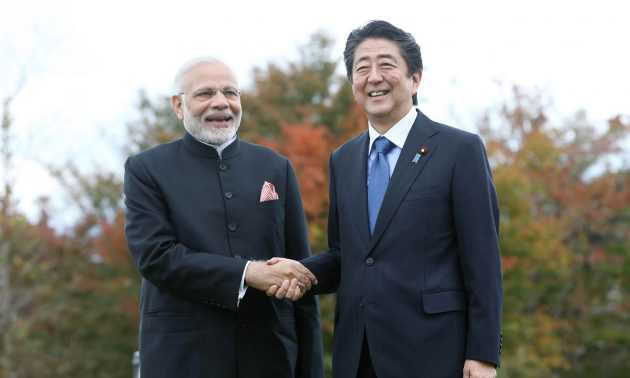The Quadrilateral Security Dialogue meets in Singapore
18 November, 2018

The partners of the Quadrilateral Security Dialogue, or Quad, met in Singapore on November 15, researcher Arzan Tarapore wrote the National Bureau of Asian Research, a US think-tank, on the same day.
Quad is an informal grouping of Australia, India, Japan and the United States and this was its third meeting since it was reorganized in 2017 after a decade-long hiatus.
According to the posting on the National Bureau of Asian Research’s website, the meeting in Singapore “covered a range of security and economic issues under the rubric of supporting a free, open and inclusive rules-based order,” which could be seen as a veiled reference to China’s increasingly assertive policies in the Indo-Pacific region.
Tarapore argues that “as a strategic dialog, it does not aspire to become a standing multilateral institution or military alliance,” but Quad’s most important potential advantage is its geopolitical configuration as a “grouping of militarily capable powers” which could “prevent the emergence of Chinese regional hegemony.”
Over the past few decades, China has made significant inroads into the Indian Ocean region, establishing a close relationship not only with its traditional ally Pakistan, but also with Sri Lanka and Madagascar as well as smaller island nations such as the Maldives, the Seychelles and the Comoros.
On August 1 last year, China also opened its first overseas military base in Djibouti on the horn of Africa. However, the effectiveness of Quad has been questioned by several Indian as well as Western observers as Canberra is a less-than-enthusiastic partner of a bloc which, without actually saying, is aimed at containing China, Australia’s most important foreign trade partner.
Under President Donald Trump, the United States also appears to be less committed to Asia than was the case under his predecessors. That leaves India and Japan as close partners, and Indo-Japanese friendship has blossomed under their respective prime ministers Narendra Modi and Shinzo Abe.
Both are nationalists in their own countries and concerned about the spread of Chinese influence, especially in the Indian Ocean region.
